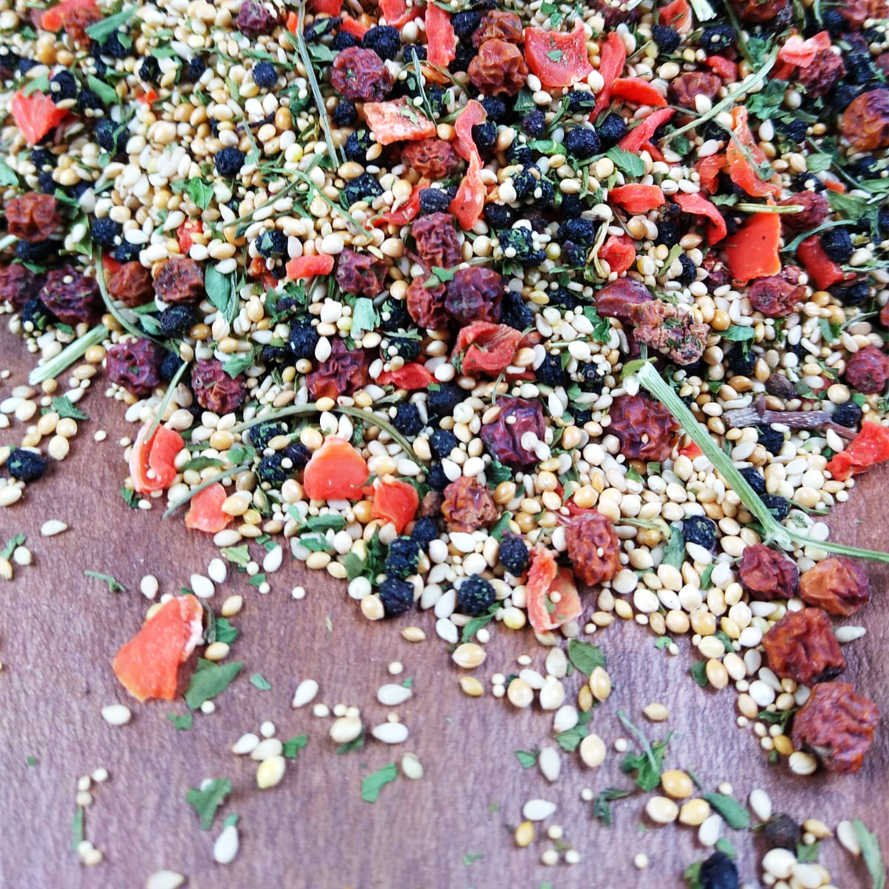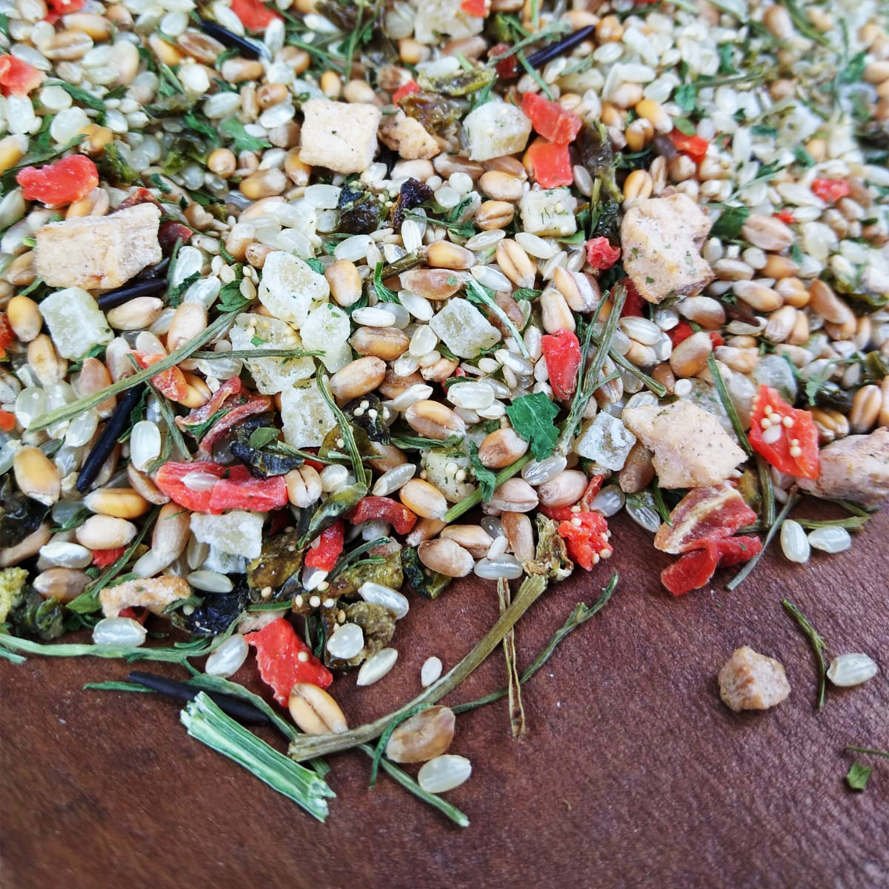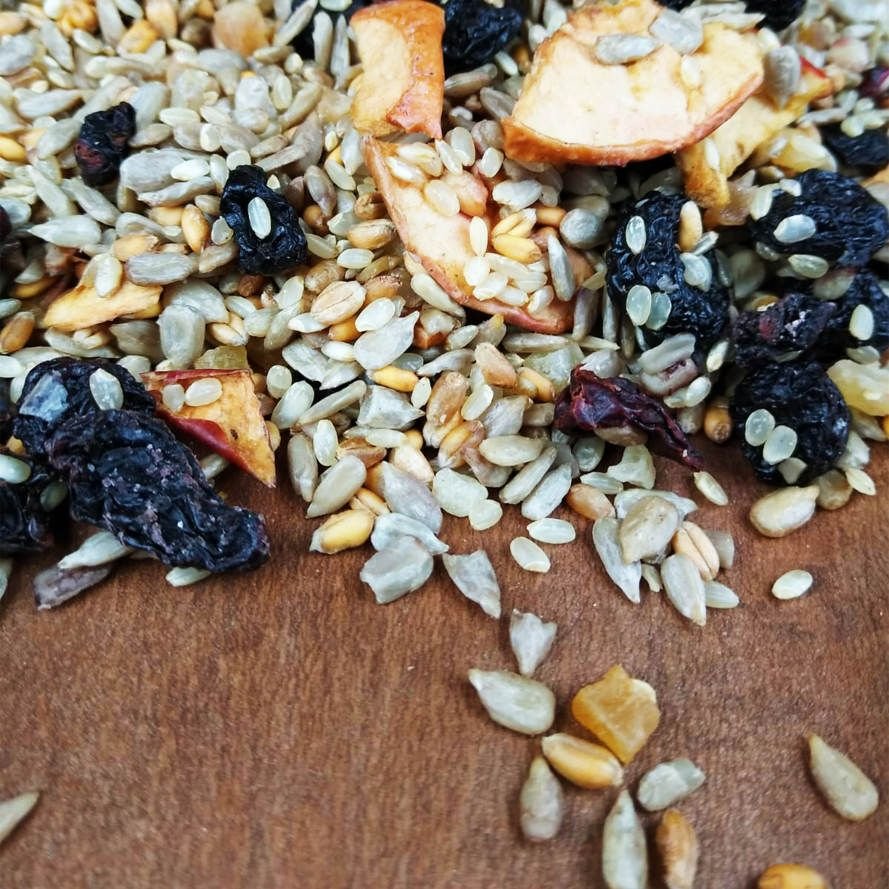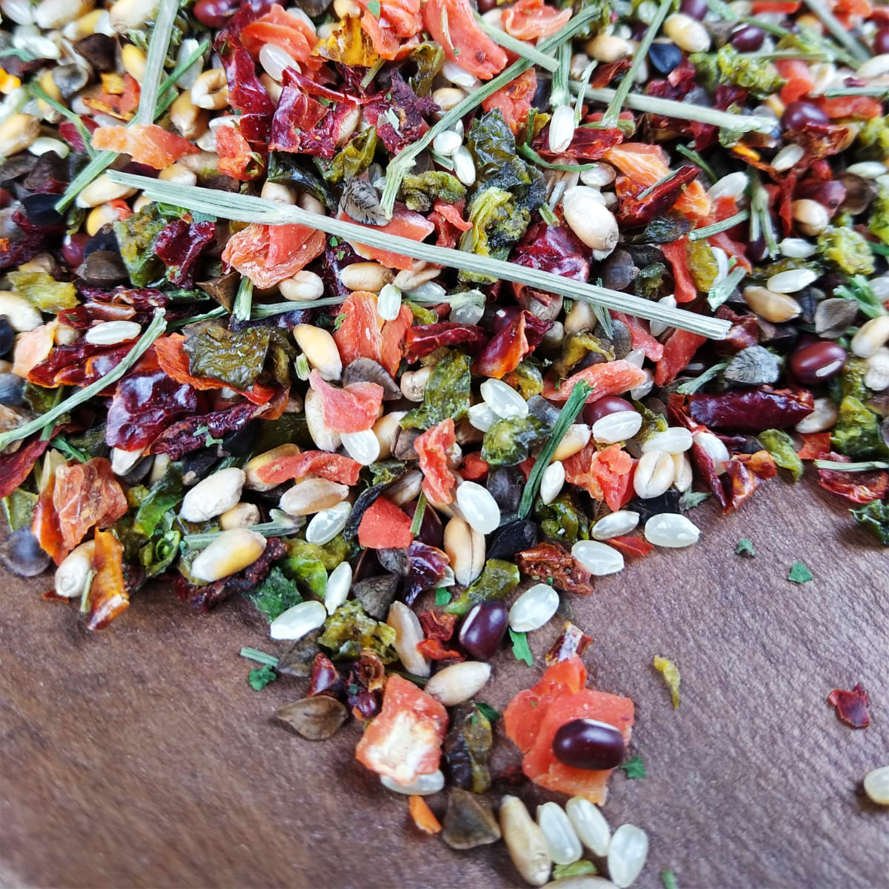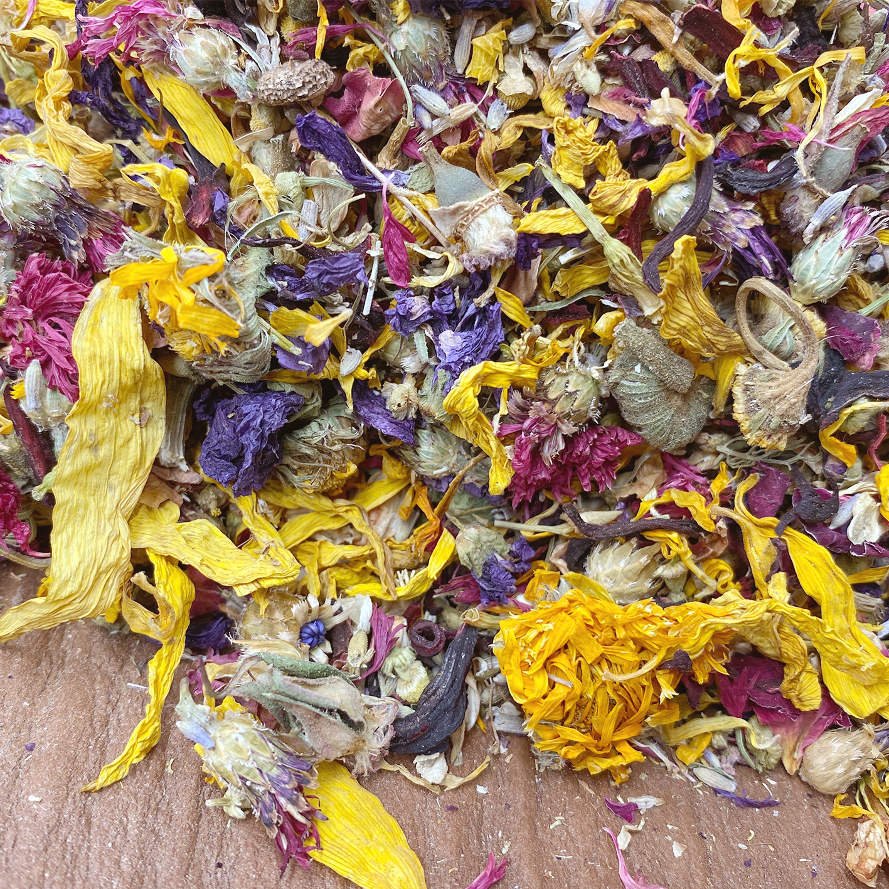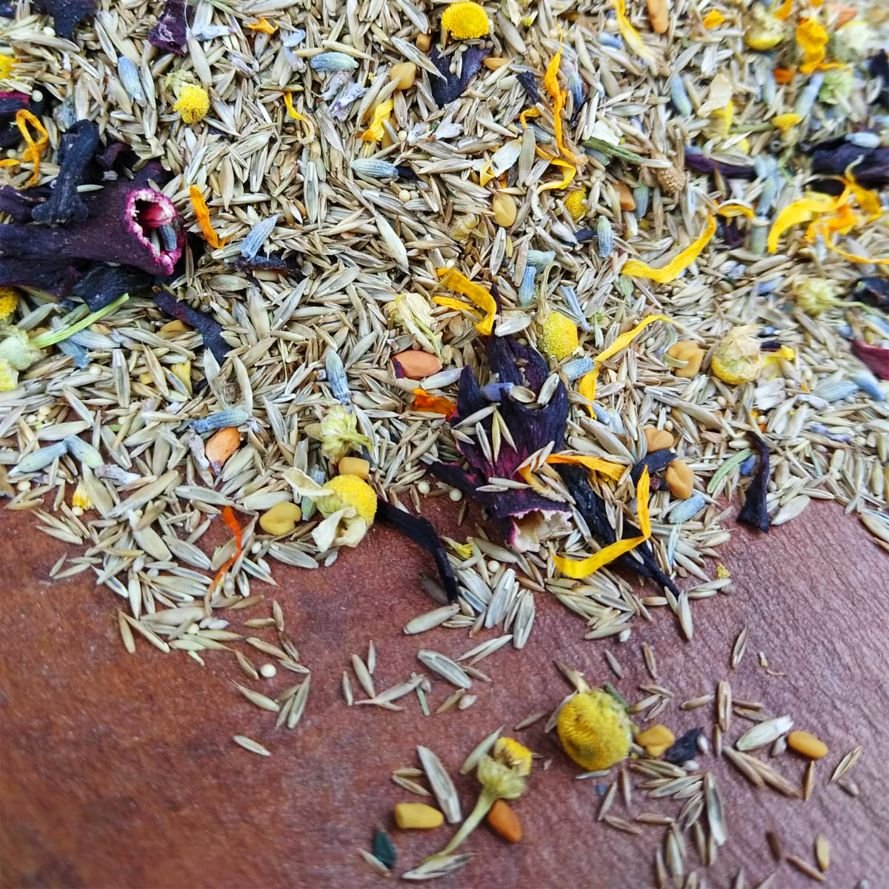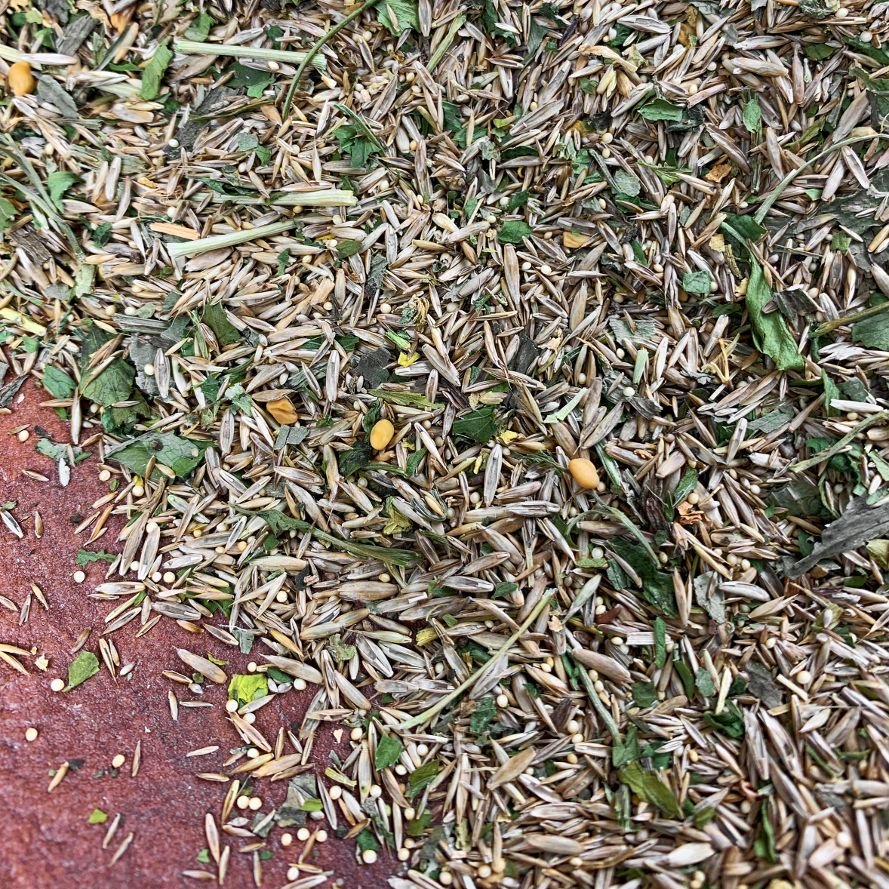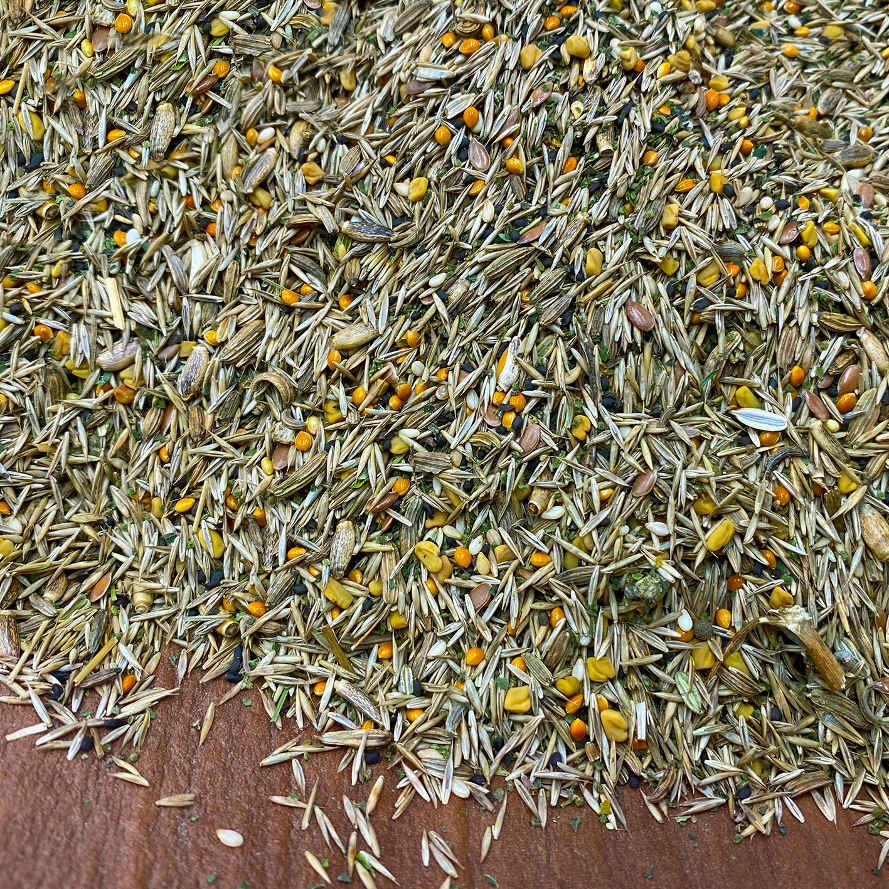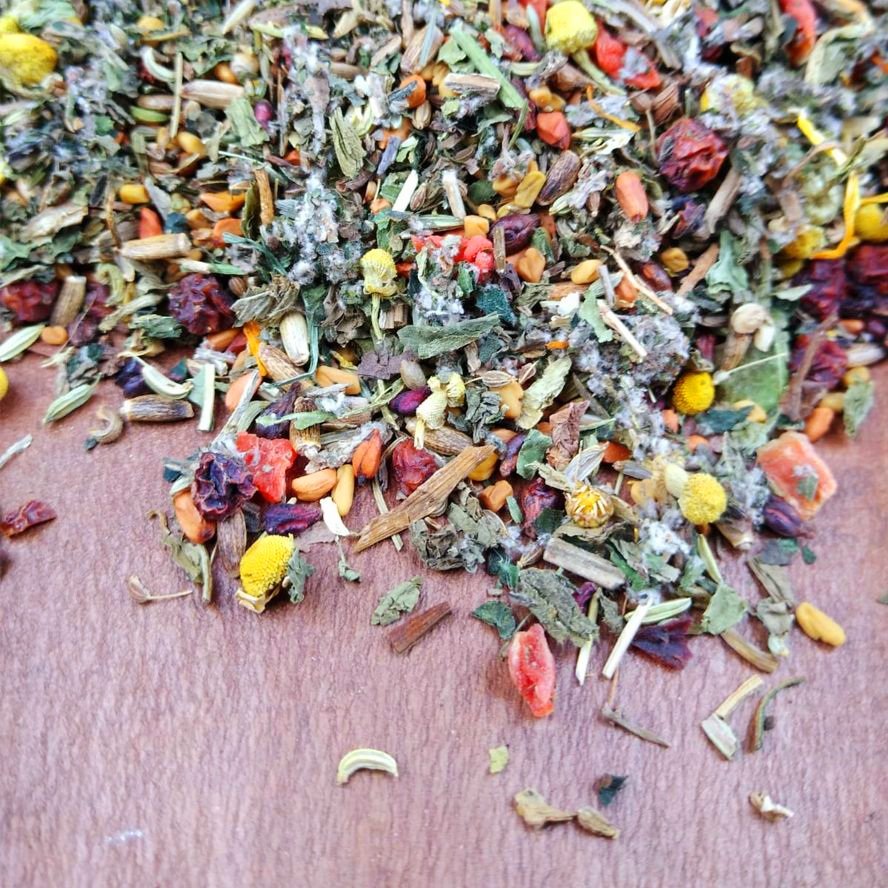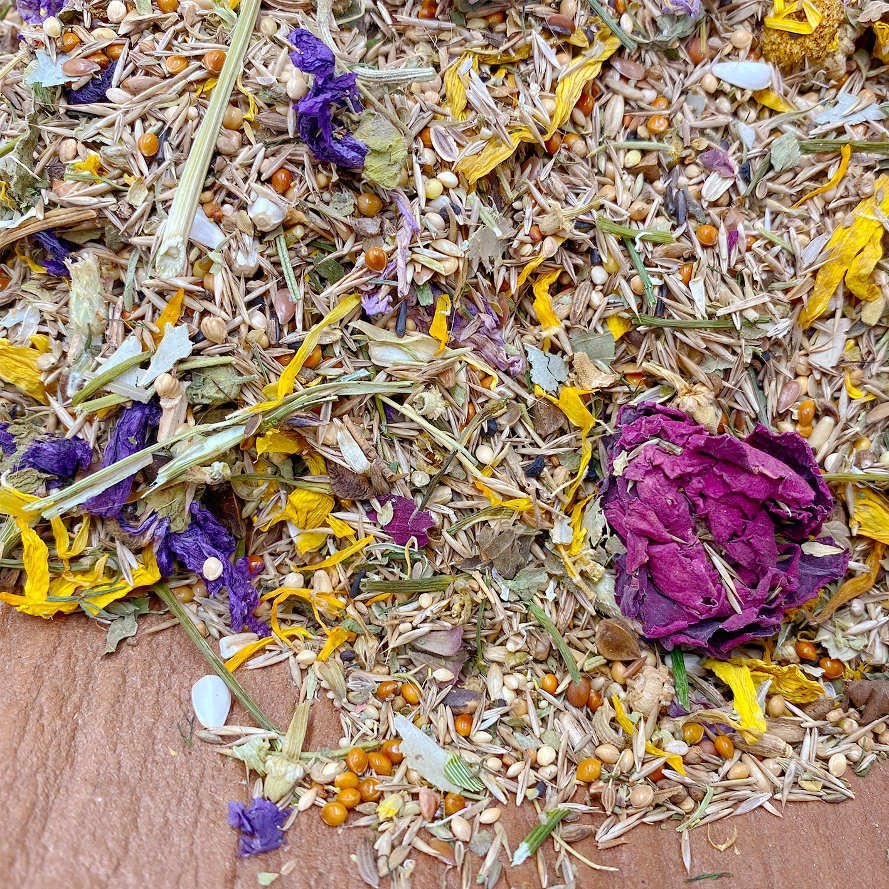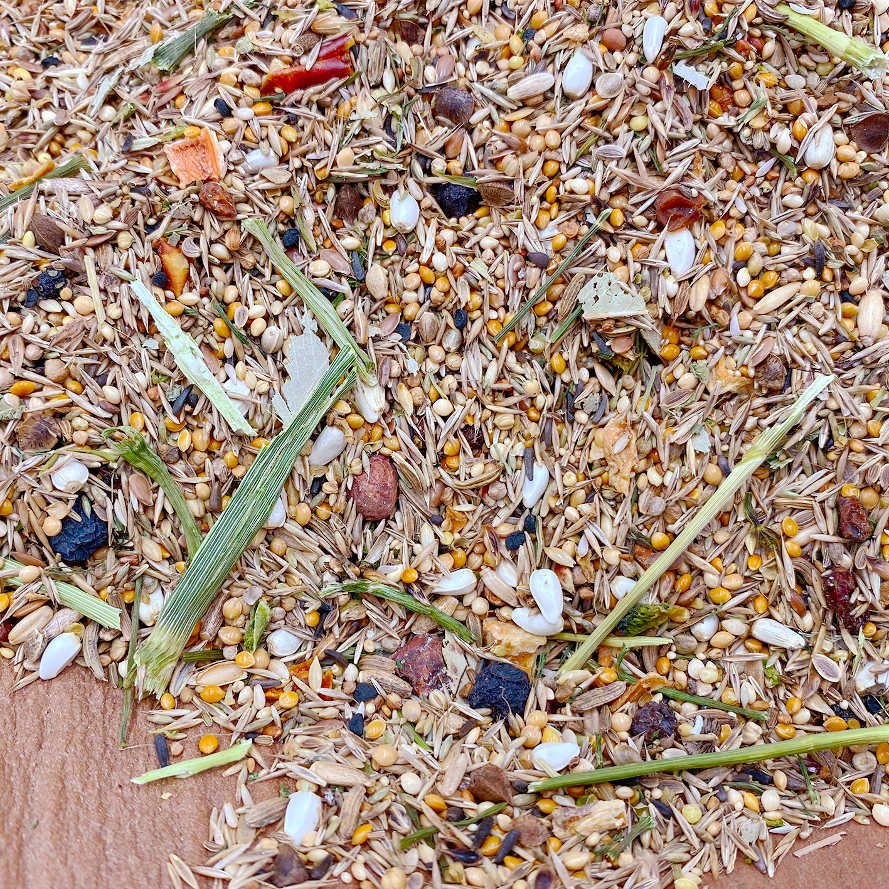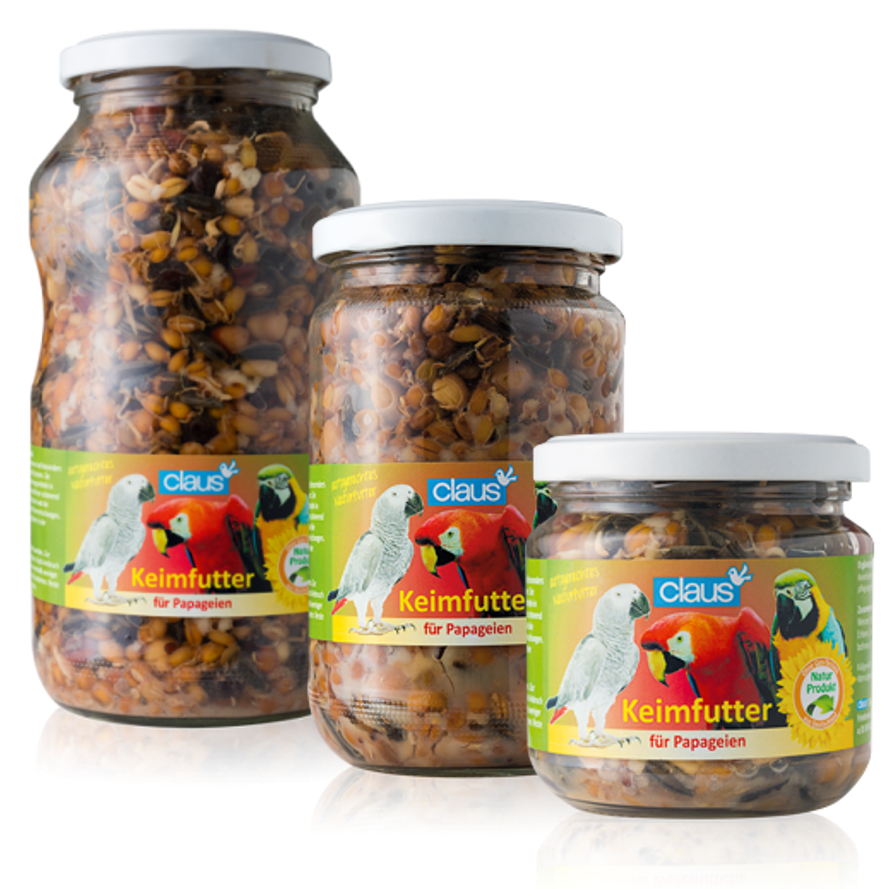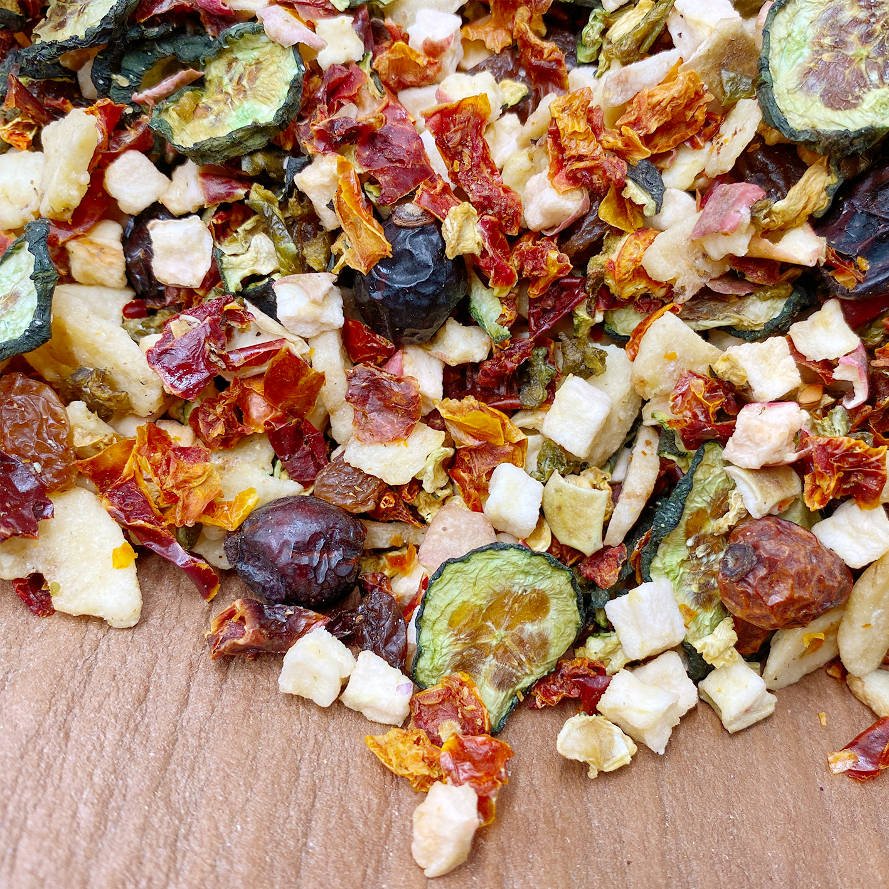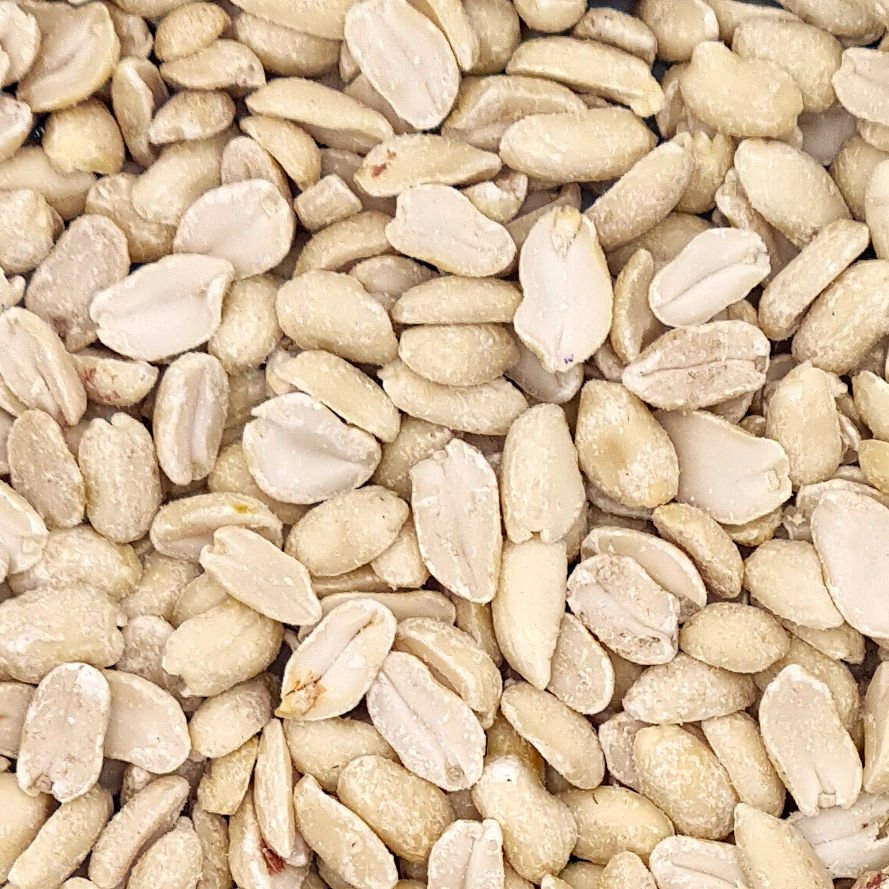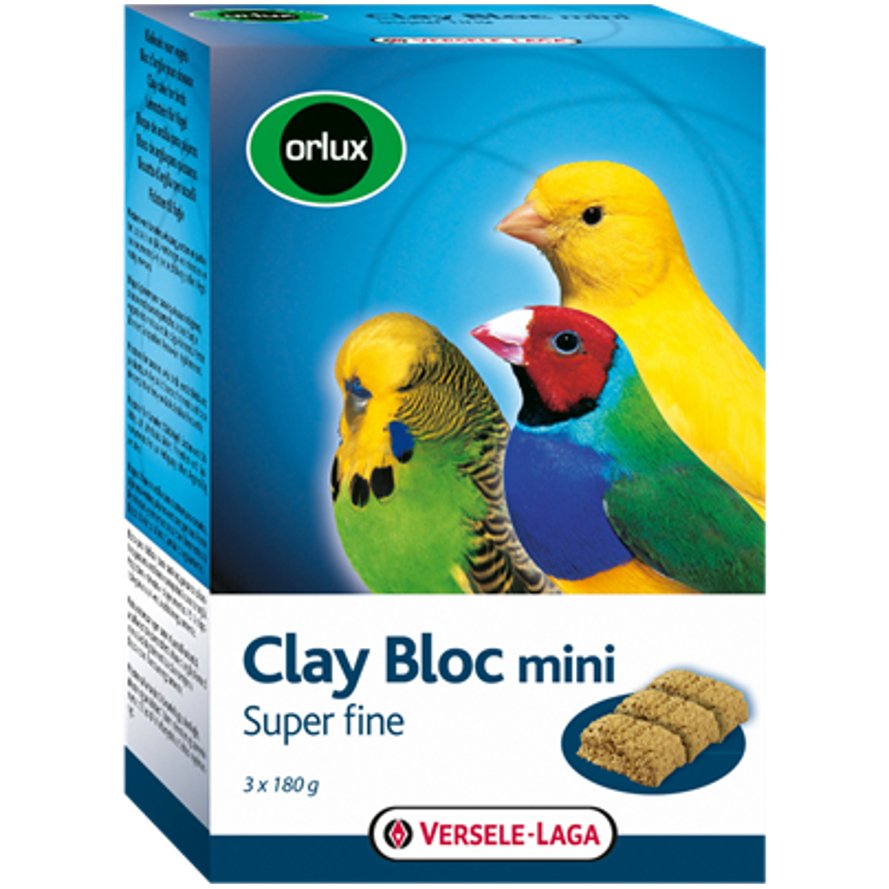
Special food for pink cockatoos
Hey you! Welcome to our online shop for healthy food for Galahs! When it comes to Galahs, we know exactly what they need. Our selection includes low-fat and high-carb feed mixes that are specially tailored to the needs of your feathered friends. Buy healthy food and make your galahs happy and healthy with our high-quality food - order easily and conveniently from home!- s mall seeds for smaller parakeets
- low in fructose
Content: 0.5 kg (€9.00* / 1 kg )
- balanced ratio between fruit and vegetables
- satiating
Content: 0.5 kg (€9.00* / 1 kg )
- Fruit & rice for large parakeets & parrots
- filling
Content: 0.5 kg (€9.00* / 1 kg )
- Cooked food with vegetables based on wheat & rice
- for large parakeets & parrots
- satiating
Content: 0.5 kg (€9.00* / 1 kg )
- With 9 different flowers from natural medicine
- Flowers can also be used for tea
Content: 0.1 kg (€45.00* / 1 kg )
- improved recipe of grass and flower supplement
- 5 varieties of grass seed and 4 varieties of flowers
Content: 0.5 kg (€19.00* / 1 kg )
- 6 different grass seed varieties with fine herbs
- millet and grain-free
Content: 0.5 kg (€19.00* / 1 kg )
- Improved recipe of the Health Extra
- High-quality herbal seeds known from herbal medicine
Content: 0.5 kg (€20.00* / 1 kg )
- as a food supplement or tea
- suitable for all parakeets and parrots
Content: 0.5 kg (€22.00* / 1 kg )
- high proportion of fescue grasses, Delicha and Pagima Green
- with eucalyptus, thyme and marjoram
- high proportion of grass seeds
- low-sugar berries and healthy vegetables
- ready-to-use sprouted food for large parrots
- important nutrients, minerals and vitamins
Content: 0.21 Liter (€21.86* / 1 Liter )
- as an extra portion of vitamins, for feeding or as a treat
- made from 100% natural fruit, berries and vegetables
Content: 0.5 kg (€22.00* / 1 kg )
Darüber freut sich dein Liebling...
What is a pink cockatoo and where does it come from?
The behavior of pink cockatoos - hand reared
A defense is extremely difficult. Hand-reared pink cockatoos are incredibly sensitive and extremely sensitive in nature. For this reason we do not recommend hand rearing of pink cockatoos and rather recommend a natural brood. In the best case the young were still with their parents a few months after fledging and could learn social behavior. The pink cockatoos are then terribly shy, but with a little patience and love they will soon become as tame as a hand-reared. The advantage is simply that they are psychologically very much and especially in the long term more stable.

